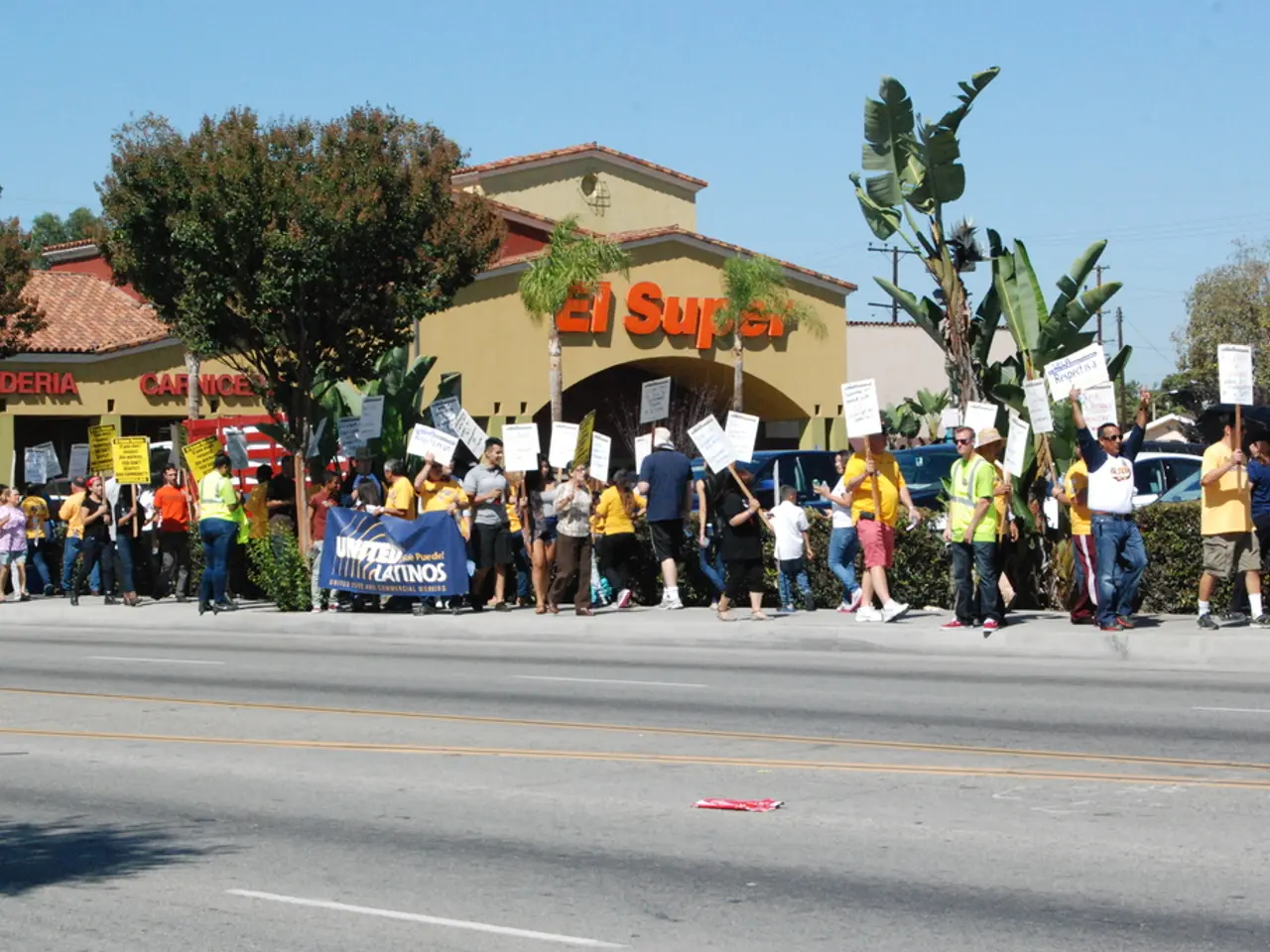SPD facing potential demotion in league standings
In the upcoming local elections scheduled for September 14 in North Rhine-Westphalia (NRW), the incumbent Christian Democratic Union (CDU), Social Democratic Party (SPD), and Greens are facing stiff competition from the Alternative for Germany (AfD) and the Left party.
NRW, Germany's most populous state and a political bellwether, is known for its diverse landscape, encompassing large cities, rural areas, structural change, insolvent municipalities, and migration. With over 13.7 million eligible voters, the elections are considered a major political mood test, particularly following the federal election in February.
The SPD, traditionally strong in the Ruhr area, managed to hold on to their stronghold in the federal election, but the AfD is gaining ground in places like Gelsenkirchen and Essen II. The SPD's party leader from Duisburg, Barbara Bas, secured her own constituency of Duisburg I in the February elections, but the party is fighting to retain their former heartland. Bas, a down-to-earth social democrat with a working-class background, is considered a beacon of hope for the battered SPD in Gelsenkirchen.
According to a Forsa poll from early July, the CDU, SPD, and Greens are facing losses in the local elections, while the AfD and Left are gaining. However, Dirk Wiese, manager of the Bundestag faction, believes that the performance of the Merz coalition in Berlin will have little influence on the local elections in NRW. Wiese characterizes the AfD as being like the wolf in sheep's clothing, only interested in big capital and not in the challenges of workers.
Political scientist Norbert Kersting from the University of Münster considers it unlikely that an AfD politician could move into a larger town hall in NRW due to the existing barrier of parties that rigorously distance themselves from the AfD. Wiese states that understanding the everyday problems of people, being grounded, and being credible are crucial, and the SPD is strong locally in this regard. The SPD could land at 22 percent statewide, which is significantly better than their recent performance at the federal level, but still sobering for NRW.
The local elections in NRW will undoubtedly provide valuable insights into the political mood of the region and the strength of the major parties. As we approach September 14, the race is on to secure votes and maintain strong local representation.
The SPD, mindful of their working-class background and everyday challenges faced by people, aims to maintain their strong local representation in the upcoming local elections in North Rhine-Westphalia, countering claims from the Alternative for Germany (AfD) who are perceived as masquerading as pro-worker while only interested in big capital. The diverse landscape of NRW, including its cities and rural areas, will serve as a backdrop to a policy-and-legislation debate that might potentially influence service provision and general news, as the results of the election will highlight the political mood of the region, providing insight into how the major parties are perceived by the public.




